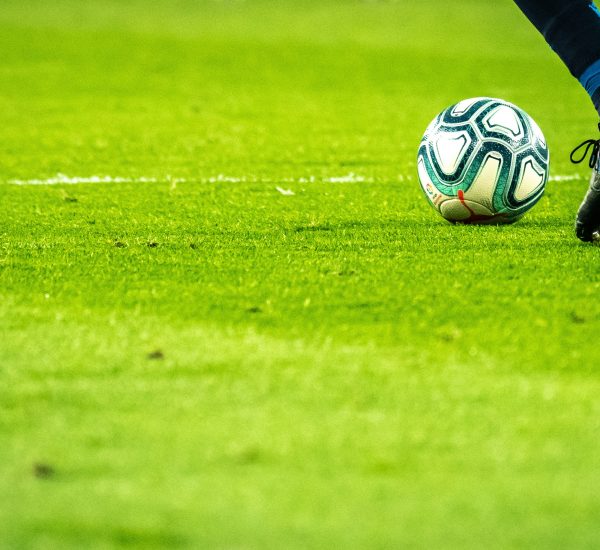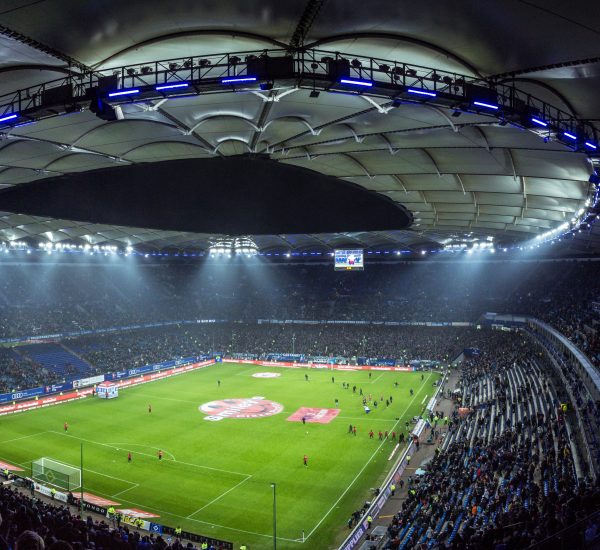Feyenoord Rotterdam is a professional soccer team that plays in the Eredivisie League. July 19, 1908, marked the formation of the Dutch club.
Feyenoord plays their home game at the De Kuip stadium. The stadium has a capacity of 51,177 seats. The Dutch team ranks third in terms of titles winning side in Holland. They have won 15 Eredivisie titles to-date. Besides, Feyenoord has 13 KNVB Cups, 4 Johan Cruyff Shields. On the European level, the Rotterdam based club has won it all. They have 1 European Cup, 2 UEFA Cups, and 1 Intercontinental Cup.
Feyenoord has been one of the most dominant sides in the Dutch league during the early years. Let us have a look at the formation of the club.
| Full Name | Feyenoord Rotterdam |
|---|---|
| Founded | July 19, 1908 |
| Nickname | De club aan de Maas |
| Stadium | De Kuip |
| Capacity | 51,177 |
| Chairman | Toon van Bodegom |
| Manager | Arne Slot |
| League | Eredivisie |
The Formation Feyenoord And Early Success
On July 19 1908, four young lads settled for Wilhelmina’s name as they met in cafe De Vereeniging to create a new soccer club. As they experimented with club names and kits, the permanent name decided was Rotterdam Football Club Feijenoord (Rotterdamsche Voetbal Vereeniging Feijenoord).
Operating from Kromme Zandweg in South Rotterdam, Feyenoord underwent promotion after promotion to make it to the top tier of Dutch soccer in 1921. Relegation has never knocked on their door to date. The club’s best thing was that the Rotterdam dockyards’ working personnel felt a connection with Feyenoord, and the support grew day by day. Feyenoord is also known as De Club van Het Volk (The Club of The People).
The aspirations of the fans paid off in 1924 when Feyenoord won their first-ever Eredivisie Title. The whole city celebrated and rejoiced in the victory of the ordinary person’s club.
Feyenoord grew in support and stature as they won their second league title in 1928 and their first-ever KNVB Cup in 1930. They needed a new home. So in 1937, one year after their third league title, they moved to their current home stadium from Kromme Zandweg. The facility was named Feijenoord Stadion. The move proved lucky for them as they won their fourth title in 1938.
Impact Of World War II And Struggles
World War II brought drastic changes to Feyenoord’s heritage. They had to play their home matches at Sparta Rotterdam’s Kasteel instead of the De Kuip. The Nazis captured the stadium, now known as the Feyenoord stadium.
There also came a time when even Sparta Rotterdam’s Kasteel was unavailable for them. It allowed Feyenoord to play their home games on their previous ground, i.e., the Kromme Zandweg.
Despite all the difficulties they faced, Feyenoord won their fifth Dutch title in 1940. Even though the Germans had occupied the Dutch territories during World War II, the leagues carried on as per schedule.
However, the 1944/45 season got cancelled as the war was coming to an end. Things took a dip after World War II ended. Feyenoord was unable to find consistency in their performances and continuously got knocked out of the national play-offs.
World War II’s impact lasted well over twenty years as Feyenoord had to wait until 1961 to lift its sixth league title. It was the start of their golden period.
Major Success And The Golden Era
Feyenoord won two consecutive league titles in 1961 and 1962. In 1965, they won their first double, winning the KNVB Cup and the Eredivisie. 4 years later, they repeated that feat. While domestic success was becoming a part of the culture, European triumph still eluded the Rotterdam club.
The legendary Austrian Ernst Happel broke the jinx, a coach who won the European Cup twice with two different teams. Under his coaching, in 1970, Feyenoord finally flexed their muscles on the European stage. They reached the quarter-final by defeating AC Milan. They were trailing by one goal in the first leg.
The comeback kings repeated the same against Vorwarts Berlin as they beat the German side 2-0 in the second leg. They were trailing by a goal from the first leg. They reached their first European Cup final by beating Legia Warszawa 2-0 on aggregate.
They faced Celtic in the all-important final. After a tense game with nothing to separate both teams after 90 minutes, Ove Kindvall scored an injury-time winner to ensure that Feyenoord won their first-ever European trophy. It was also the first time a Dutch club won the most significant European competition and led to a huge celebration.
They went on to win the Intercontinental Cup, which is the equivalent of the FIFA Club World Cup. They retained the Dutch Championship the following year. 1974 was another notable year for the Rotterdam based club. They changed their name from Feijenoord to Feyenoord because it helped international fans pronounce their name easily.
In the same year, they reached the final of the UEFA Cup after beating Stuttgart. They were up against Tottenham Hotspur in the final clash. The match ended a 2-2 draw at White Hart Lane. However, Feyenoord won 1-0 at their home stadium and became the first Dutch team to lift the UEFA Cup. They also won the league in that fruitful year as the club grew locally and internationally.
The 80s And 90s
Feyenoord failed to win a single trophy in the next six years. But, the 80’s started well for them. In one of the most anticipated fixtures of the campaign, Feyenoord beat Ajax 3-1 in the 1980 Dutch Cup final. The feeling of beating their arch-rivals was unmatchable.
Three years later, Feyenoord enjoyed one of their best campaigns as they won the double for the 3rd time in their history.
After a few bad campaigns in which Feyenoord barely scraped relegation (preserving their unique status of never going down since their promotion), they secured another Dutch Championship in 1993 by beating Groningen by 5-0 in the final game.
After an uninspiring European campaign, they triumphed in the KNVB Cup Final against Ajax in 1995. Despite trailing 1-0, Feyenoord managed to turn the game around and win by 2-1. However, Ajax won the Champions League that season. Their success was not well received by the Rotterdam club.
In 1999, Feyenoord won their 14th Dutch League title. At the start of next year, they overcame Ajax again to win the Dutch Super Cup title. As we approached the year 2000, Feyenoord fans were full of hope.
Feyenoord And The Post 2000
Unfortunately, the 21st century has not brought much joy to the Feyenoord supporters. The UEFA Cup victory in 2002 might be a highlight as they beat Borussia Dortmund in the final. However, that title was the start of poor results domestically and on the European level.
The last time they challenged the Dutch Championship was the 2005/06 campaign, where they narrowly finished second behind PSV Eindhoven.
Two of their best players, Solomon Kalou and Dirk Kuyt, left for Chelsea and Liverpool, respectively. No proper replacement happened, and the fans grew frustrated.
The frustrations resulted in club manager, Van den Herik, getting sacked. The Dutch club was now actively looking for their next coach. At the same time, hooliganism led to Feyenoord’s suspension from European competitions.
The 2007 transfer window came as a surprise as the club recruited a tremendous up and coming fullback in Royston Drenthe from the U21s. They signed two great players in Giovanni van Bronckhorst and Roy Mackay.
However, the results on the pitch did not improve as Feyenoord finished 6th on the table. As a consolation for the fans, their six-year trophy drought was finally over when they beat Roda JC 2-0 to win the KNVB Cup. The club appointed Gertjan Verbeek as their manager in 2008. His managerial regime at Feyenoord did not last long as Verbeek was sacked based on poor results in the Championship.
The club’s decline was confirmed in October 2010 when they lost 10-0 to PSV Eindhoven. Their financial problems did not help much with their managerial issues. Louis Van Gaal refused to coach the club when approached. Therefore, the club decided to appoint Ronald Koeman.
Despite attracting a massive managerial name, the club continued to lose in the transfer market. Players like Gini Wijnaldum, Leroy Fer, and Andre Bahia left for PSV, Twente, and Samsunspor respectively.
Their only silver linings of the previous decade were in 2017 and 2018. They started 2016/17 well after winning seven games in a row. They also beat Jose Mourinho’s Manchester United 1-0 at home in the Europa League.
However, poor away results in the Europa League made them crash out of the competition. Feyenoord was doing well in the Dutch Championship that season as they went into January with a 5-point lead over PSV. They beat Heracles 3-1 in April to win their first league title in 18 years and 15th overall. All the goals came from their captain Dirk Kuyt. It was the last ever game the legend ever played. A special day for Kuyt to grab a hat trick in his last game with his team winning the league.
In the 2019/20 campaign, Feyenoord finished third in the league. They qualified for the Europa League but finished third in their group stage matches.
End Of The Line
Feyenoord has achieved much success in its early history. Despite a decline in their recent performances, the team’s objective is to return to the top of the Dutch league. With the support of their fans, everything remains possible.
Reference Sources:
- Date accessed: March 25, 2021. Droom Parken. History: https://bit.ly/3d5ic6T
- Date accessed: March 25, 2021. Wikipedia. History of Feyenoord: https://bit.ly/3tM3Wqm
- Date accessed: March 25, 2021. Wikipedia. Feyenoord: https://bit.ly/2Qrz53Z
- Date accessed: March 25, 2021. Wikipedia. 2020-2021 UEFA Europa League: https://bit.ly/2P8TKtg
- Date accessed: 25 March, 2021. Wikipedia. Gertjan Verbeek: https://bit.ly/3fdWAYW
- Date accessed: March 25, 2021. Outside Write. The history of the Netherlands’ ‘Big Three’: https://bit.ly/31iTV7O


